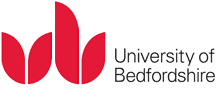Health Science courses
University of Bedfordshire

- UK
- World Rank : 801
- Visit Website
When you join this MSc course you will join a supportive and nurturing ‘community of inquiry’.
Along with your peers you will develop a critical awareness of how research processes can be applied to the study of public health, an insight into the global drivers behind health system reform, and an appreciation of policy development and implementation in developed and developing nations.
This course is for you if you seek a career in public health. There are a range of career opportunities within public health, including public health analyst, public health programme manager and public health specialist. The course can also act as a platform for postgraduate research (MPhil/PhD) study in public health and provides you with sufficient grounding for the UK Faculty of Public Health Part I examination. Upon completion of this course, all students become eligible to apply for fellow membership of the UK Royal Society for Public Health.
Why choose this course?
92% of our graduates are in work or PhD studies in different countries around the world. (DLHE, 2014).
All of our research is recognised as internationally excellent in impact, and the majority is world-leading (2014 Research Excellence Framework).
This course will help you to develop a critical understanding of how public health policy is developed and implemented in developed and developing countries and how the research process is applied in the study of public health. In addition, this course:
Unit Information – What Will I Learn?
Teaching for each of the eight core unit is based on a series of weekly lectures and workshops. Between lectures, your learning will be underpinned by the University’s Virtual Learning Environment (BREO) which is used to provide access to additional guided learning materials and e-learning resources. After you have completed the eight core units, the dissertation unit will provide an opportunity to develop your public health research skills.
How will I be assessed?
Each unit is designed to develop your public health skills in ways which are directly relevant to the workplace. This is designed to help you in identifying, reflecting on and meeting your own learning needs.
In order to assist your future professional and career development, each assignment will require you to identify and develop a competency from the UK Faculty of Public Health framework which forms the basis of your learning and underpins your assessment. As you undertake each unit, you will be given the opportunity to develop your skills in a range of public health techniques via the assessments.
To apply for a postgraduate degree (MA/MSc/MBA/LLM) at the University of Bedfordshire you should have a good honours degree (or equivalent qualification) in an appropriate subject from a recognised university or HE institution.
Students should hold a relevant health or social care degree (grade 2:2 or higher).
It is also highly desirable that candidates have some experience of working within a health (preferably in public health) or social care sector.
Formal English language tests accepted
The University accepts the following qualification as satisfying the English Language requirements for entry to a Bachelor or Master's degree
IELTS overall score of 6.0 with minimum 5.5 in each element
TOEFL iBT - Listening: 17, Reading: 18, Speaking: 20, Writing: 17
Pearson PTE - Listening: 51, Reading: 51, Speaking: 51, Writing: 51
| Type | Public |
| Campus Setting | Urban |
| Application portal | Online |
| Academic Calendar | Semester-based |
| Mode of Payment | Online via e: vision account; Debit and Credit cards |
| Acceptance Rate | 70-80% |
Here is a table showing the determined the average cost of attendance (Estimated Tuition fee and Living cost)
| Level | Total Fee |
|---|---|
| Undergraduate | £12,350 (p.a.) |
| Post Graduate | £12,750 (total) |
| MBA | £14,000 (total) |
| Average cost of Living | £1,200–1,500. |
Bedfordshire University Application process
Application Fee: £18 (UCAS)
Some necessary supporting document needs to be attached with the application
Application Deadline: No such specific deadline for direct application submission.
Note: However, applicants are advised to complete and submit the application before 30 days of the start of the course.
Here is a table showing the determined the average cost of attendance (Estimated Tuition fee and Living cost)
| Tuition Fees in UK (1st Year Average) | MS: £17276 | MBA: £17276 | BE/Btech: £16632 | BBA: £15130 | BSc: £16632 | MFin: £19000 | MA: £15560 | MIM: £18241 | MEM: £16950 | MArch: £14271 | BHM: £12662 | MIS: £15344 | MEng: £12876 | MBBS: £28865| MPharm: £15452 |
| Average Accomodation & Food Costs in UK | £850 to £1,050 a month |
| Entrance Exams in UK | TOEFL: 88 | IELTS: 6.5 | PTE: 59 | GMAT: 590 |
| Work and Study in UK | Permitted for 20 hours/week with a valid study permit. |
| Post Study Work Permit in UK | 2 Year after graduation depending on the course. |
| Cost of Student Visa in UK | £348 |
| Student Visa in UK | Your nationality, duration of your stay and purpose of your stay are the three essential factors for UK visa. For Non-EU students UK visa is mandatory. |
| Intakes in UK | There are mainly two intakes in UK: January/February & September/October. |
| Top Job Sectors in UK | IT Engineering, Product Design, Mobile Development, Designers, Logistics, etc. |
| Economy in UK | Growth Rate: 1.3% (2018) 1.4% (2019) 1.4% (2020e), 6th Largest Economy in the World by Nominal |
Tuition & fees :
£ 13,275
Total
£ 13,275